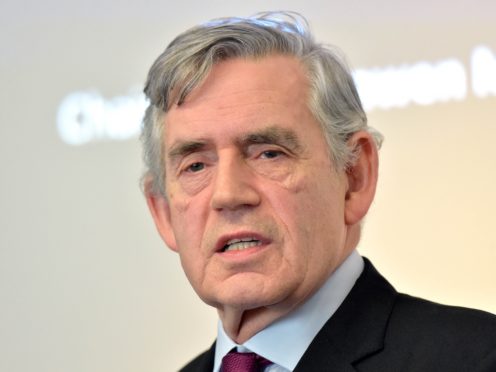The decision over whether to continue providing free TV licences for the over-75s should not be made by the BBC, former prime minister Gordon Brown has said.
The Government-funded scheme is due to end in 2020, with responsibility transferring to the BBC.
A consultation on its future has been launched by the corporation, but it has warned that continuing with the scheme could cost around a fifth of its budget.
Writing in the Daily Mirror, Mr Brown, who introduced the free licences when he was Chancellor in 1999, criticised the Government for “wash(ing) its hands of the issue”.
“Despite its election promise to protect free TV licences, the Government has … deliberately but shamefully transferred responsibility for deciding who in our pensioner community pays the licence fee or does not pay to the BBC itself,” he said.
“Quite simply the BBC should not be making judgments about the distribution of income between social groups.”
Mr Brown also warned that the number of pensioners in poverty had risen over the past three years, and that abolishing the free TV licences would “make that poverty worse”.
“Just at the time as poverty is rising the benefit is at risk of being taken away,” he said.
The BBC has previously said that the cost of continuing to provide free TV licences for over-75s would “fundamentally change” the corporation.
One option could be to scrap the scheme, while other possibilities include reforming it in various ways such as discounting the cost of a licence fee for older people, raising the age from 75 to 80, or introducing means-testing.
BBC director-general Tony Hall said it was “an important decision”, adding: “We have set out a range of options – each has merits and consequences, with implications for the future of the BBC, and for everyone, including older people.”
Age UK is opposing any form of charge, saying there “are still significant numbers of older people living on very low incomes who would genuinely struggle to pay the licence fee”.
It is expected that free TV licences would cost £745 million a year by 2021/22 should they continue to be free for over-75s.
Economic consultants have said the cost of providing a free BBC service to over-75s would exceed £1 billion a year in a decade’s time.
The corporation took over the cost from the Government of providing free TV licences for over-75s as part of its charter renewal negotiations.
The Government has previously said that it has been “clear that we would want and expect them (the BBC) to continue with this important concession”.
